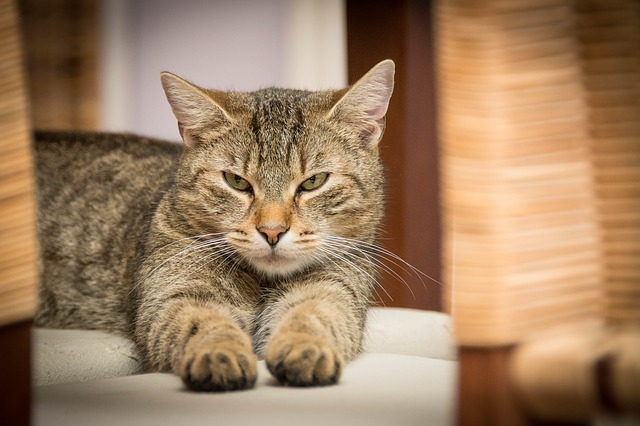
It’s a common belief that cats only love us because we give them food. And if we stop feeding them, they’ll stop loving us in a hurry. Even though cat owners may feel that their pet cats love them for more than just the kitty treats they give, there’s still that nagging doubt. Now, they can put their apprehension to rest.
Based on a study done by Lindsay Mehrkam, Kristyn Vitale Shreve and Monique Udell from the Oregon State University and Monmouth University, cats do love socializing with us, and not just because we feed them. In other words, the stereotype that cats are unfriendly and uncaring is likely incorrect.
To arrive at the results, the trio of researchers observed a group of 55 cats that included 23 house pets and 22 from an animal shelter.
The cats were confined for two and a half hours, during which they were given three items from one of four category types: food, toys, scent, and human interaction. They then mixed the items up to obtain a more accurate read on which stimuli the cats preferred the most. They recorded the order of the cat’s preferences, and noted how long the cat interacted with each stimulus.
There were clear differences among the cats’ preferences. But collectively, it turned out that the most preferred stimulus was human interaction, followed by food, toys and scent.
Specifically, the results are as follows: 19 cats (50%) liked human interaction best; 14 cats (37%) liked food best; 4 cats (11%) liked toys best; and only 1 cat (2%) liked scent best.
The study suggests that contrary to popular belief, cats prefer socializing with humans more than getting a bowl of food. And that aloofness and unfriendliness that’s so typical of cats, it’s all just an act.
As Shreve wrote in their study, “Although there was clear individual variability in cat preference, social interaction with humans was the most-preferred stimulus category for the majority of cats, followed by food. This was true for cats in both the pet and shelter population.”
The study also suggests that the belief that cats are unresponsive to social stimuli is probably due to a misunderstanding or outright lack of knowledge regarding what cats actually find stimulating.
The sample population is admittedly a small one: only 55 cats were involved and from this number, only 38 interacted with the stimuli presented. This means that the results can’t be considered conclusive on a ‘species-wide’ scale, but they’re enough of a start for future research in this regard. And for cat owners, they can use it as basis for choosing what rewards to give their cats.
The study was recently published in the journal Behavioral Processes under the title “Social interaction, food, scent or toys? A formal assessment of domestic pet and shelter cat (Felis silvestris catus) preferences”.
- Bulenox: Get 45% to 91% OFF ... Use Discount Code: UNO
- Risk Our Money Not Yours | Get 50% to 90% OFF ... Use Discount Code: MMBVBKSM
Disclaimer: This page contains affiliate links. If you choose to make a purchase after clicking a link, we may receive a commission at no additional cost to you. Thank you for your support!

Leave a Reply